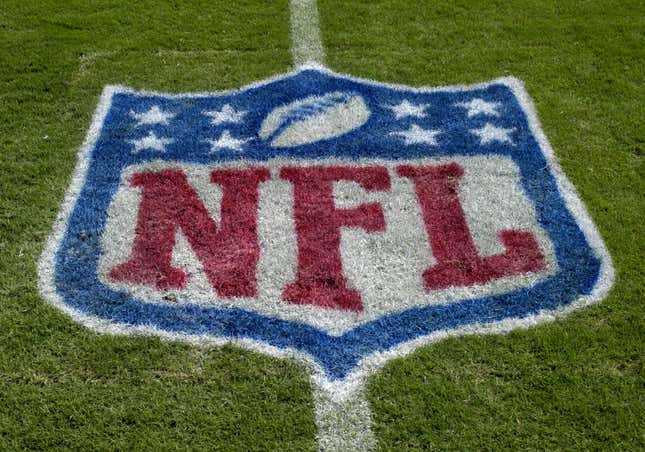
While the NFL maintains that race doesn’t factor into the eligibility requirements of its concussion settlement program, clinicians are coming forward with their concerns that the league’s recommended protocols do in fact discriminate against Black players.
According to ABC News and ESPN, when former players file for compensation, they are required to undergo a battery of tests to determine their cognitive functioning. Those scores are then compared to specific benchmarks that are meant to represent normal cognitive function. If a player’s score falls below a certain threshold, they are eligible to receive compensation. However, the “norm” for Black players is lower than that of white players.
As a result of this practice, two Black former players—defensive end Kevin Henry and running back Najeh Davenport—filed a lawsuit in August accusing the league of discrimination due to the concussion settlement program making it “explicitly and deliberately” more difficult for Black players to prove cognitive decline.
In conducting their tests, the manual that outlines testing protocols recommends that clinicians perform a “full demographic correction,” which includes age, gender, and race. But now clinicians involved in the program are concerned that the “recommendation” to adjust for race is in actuality a requirement. There are also concerns that the league’s protocols lead to “drastically different outcomes” for former players in need and that the guidance of the clinicians tasked with conducting these tests is being dismissed.
Check out some of these excerpts from emails between clinicians that were collected from a professional listserv.
From ESPN:
One neuropsychologist claimed the league’s program manual offered no such flexibility: “I don’t think we have the freedom to choose,” the clinician wrote. “If we do, apparently many of us have been doing it wrong.”
Another wrote about their possible complicity in a system that perpetuated “racial inequity” in payouts: “Especially in [...] our current state of affairs, I’m realizing and feeling regretful for my culpability in this inadvertent systemic racism issue,” the clinician wrote. “As a group we could have been better advocates.”
Another contended that while their “required reliance on these norms is spelled out in the manual,” it was still up to them to consider the consequences of their compliance: “Bottom line is that the norms do discriminate against Black players,” the clinician wrote. “So now what? In this time of reckoning, like many professions, I think we need to look closely at the expected and unexpected ramifications of our practices.”
In what should come as a surprise to nobody, the NFL is calling bullshit. According to the league, the concussion settlement was “agreed to by all parties, with the assistance of expert neuropsychological clinicians and approved by the courts more than five years ago” and “relied on widely accepted and long-established cognitive tests and scoring methodologies.”
An NFL spokesperson also stated the following:
“The settlement seeks to provide accurate examinations to retired players and thus permits, but does not require, independent clinicians to consider race in adjusting retired players’ test scores as they would in their typical practice.”
But Cy Smith, who represents Henry and Davenport, begs to differ.
“The NFL has embraced a racially discriminatory scheme for adjusting these test scores,” he told ABC News. “That’s what Kevin Henry and Najeh Davenport have in common with hundreds or thousands of other Black retired players under the settlement agreement.”
This is the part where I step aside and let Celie from The Color Purple take it from here:

